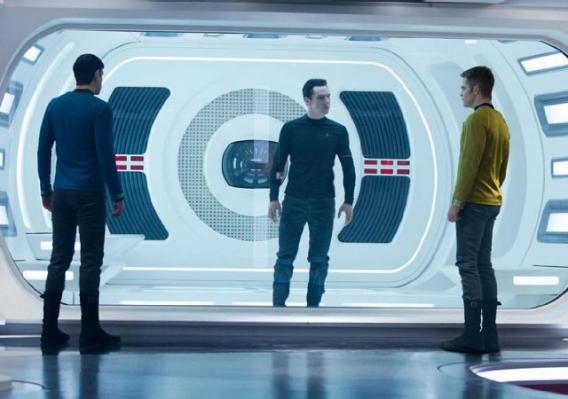Every Valentine’s Day, Copy-Editing the Culture bakes himself a tray of nourishing bran cookies shaped like hearts and settles down to be seduced by his dear love: contemporary North American style and usage guides. It is an impassioned affair. Gently, he peels the dust jacket off The Chicago Manual of Style: Sixteenth Edition and admires the book’s creamy, well-ordered pages; he fondly fingers the pages of the “Glossary of Grammatical, Rhetorical, and other Language-Related Terms” in Garner’s Modern American Usage; he allows the MLA Handbook for Writers of Research Papers: Seventh Edition to work its ordered magic on his vulnerable soul. His worries drift away. Afterward, dreamy with love, he indulges in a seasonal tea of pine needles and orange rind. He curls up in his modest ladder-back Shaker chair, surrounded by style books. It’s a simple ritual but a stirring one; a modicum of ecstasy, he thinks, helps warm the soul and temper the grammatical mind.
This year, however, Copy-Editing the Culture had trouble focusing on the pleasures at hand. He grew distracted from reading his favorite entry on anadiplosis. His attention, normally vigorous, became limp. The change stemmed from an item he saw in the day’s newspaper, neatly folded and resting on a corner of his table. It concerned the title of an upcoming film, Star Trek Into Darkness. What a horrific name. And what an early end to Copy-Editing the Culture’s night of love.
Where should Copy-Editing the Culture begin his complaint? It is, for one thing, entirely unclear what the title is trying to communicate. In what sense is Star Trek, the long-running television show about space travelers and their encounters with grammatically unenlightened residents of other planetary systems, “into darkness”? Copy-Editing the Culture might understand if the film were titled Star Trek in Darkness: This would be a version of the show performed with no lighting, an eccentric but feasible idea. Are there missing words—an implied verb, for example? The grammatical convention is to mark such elisions with a comma: Star Trek Going Into Darkness could become, conceivably, Star Trek, Into Darkness, describing a situation in which the show Star Trek begins with lighting but gradually loses it (an even more intriguing premise). Or perhaps the film’s creators intend Star Trek to be understood as a verb—to Star Trek—turning the title into an imperative: “Star Trek into darkness!” they urge viewers, as one might be enjoined to tango into darkness, down a dim Argentine street. (Copy-Editing the Culture once spent an evening during his wild-running years tangoing to dramatic readings from The Elements of Style; the memory of that sultry summer night—“The shape of our language is not rigid”—lingers in all its bliss.) In this construction, the title would command the viewer to begin Star Trek-ing (watching the show) in order to make his or her consciousness go dark. Copy-Editing the Culture does not understand what makes that an inviting premise for a movie.
Or perhaps the phrase “Star Trek” in the movie’s title does not, in fact, refer to the television show. Perhaps those two words are meant to function individually. This interpretation resolves certain problems but creates others. If trek is a verb—“We trek into darkness”—what, precisely, is going on with the apparent subject of the sentence, star? Why is it not plural, to match the verb form: Stars Trek Into Darkness? In what curious pidgin is this movie written? Or if trek is a noun—“His trek into darkness”—where is the article or pronoun that would give the title sense: A Star Trek Into Darkness? And what, for that matter, is a star trek? If it does involve stars, how can it be dark? Have the stars collapsed? Wouldn’t it be more descriptive, then, to call the film A Trek Into a Black Hole?
Copy-Editing the Culture is not alone in his concern for these and similarly frightening matters. Awake last night and robbed of love, he ventured onto his modest computer system and found that the Wikipedia page for the film has become a battle ground for grammatical debate. Certain Wikipedia users maintain that the into in the title should be capitalized; others are certain that it should be lowercase. Their fervor is misplaced (whether four-letter prepositions such as into ought to be capitalized varies by style standard; there is no universally correct answer) but honorable. The outrage is just what Copy-Editing the Culture needed last night to feel, maybe, a little less alone.
Previously from Copy-Editing the Culture:
The Grey and Salmon Fishing in the Yemen
The Holiday Horrors of Starbucks, Wendy’s, and a Foreign Film
Crazy, Stupid, Love. and Cowboys & Aliens
The Rise and Fall of Woody Allen, as Experienced Through His Punctuation
Grown Ups
Eat Pray Love
